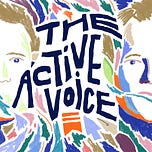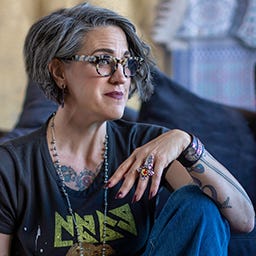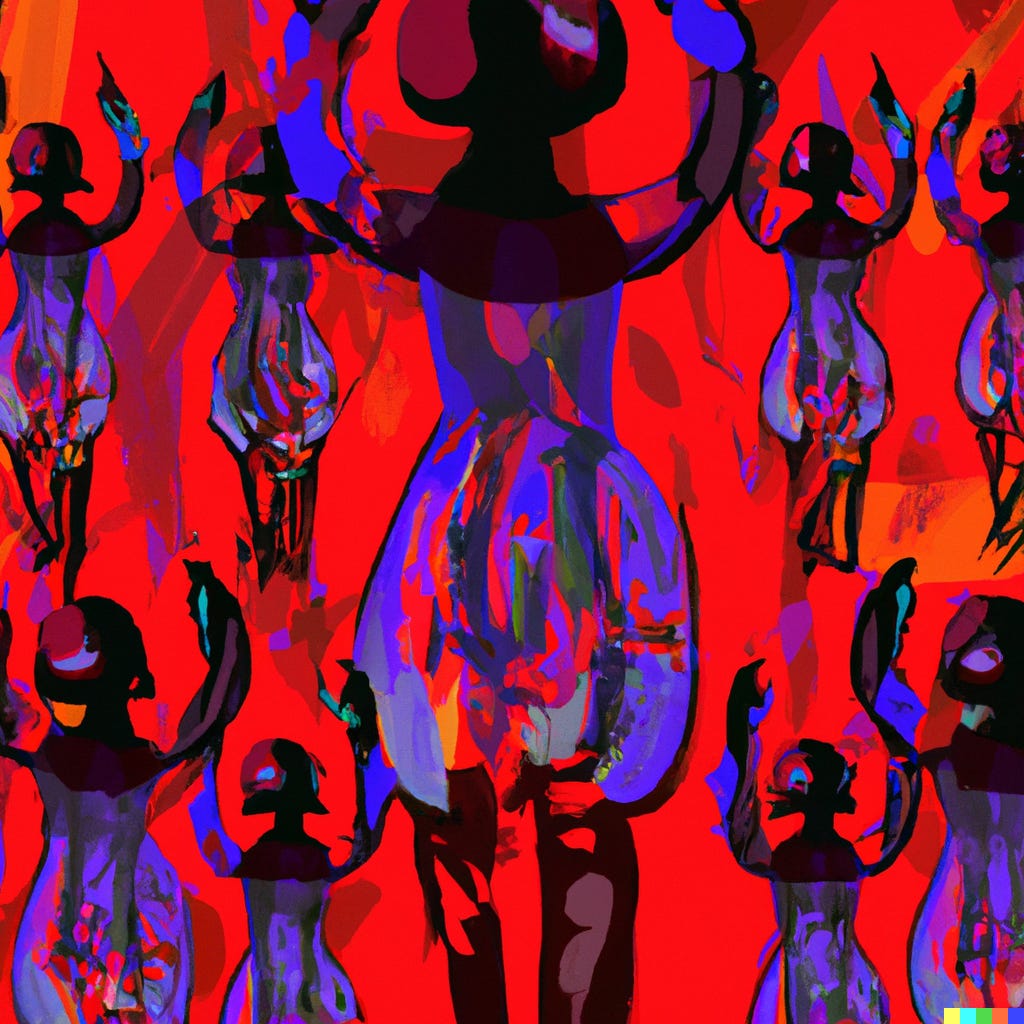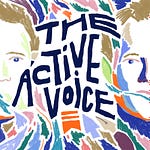At a dinner party Substack hosted in San Francisco last week, I found myself sitting next to Kevin Kelly, the founding executive editor of Wired magazine and former publisher of the Whole Earth Review. We were talking about the capital of the world. It no longer felt that New York was it, I was telling him, though it had not been replaced by another physical city either. Rather, the world now had only one, digital, capital. If you made it there, you’d make it anywhere.
He agreed, with one amendment. “Silicon Valley is the place least resistant to new ideas today,” he said, which was the original point of the world capital as a destination. I had recently interviewed
for this podcast, and her words were still fresh in my mind. I imagined her response to this would be, “The problem is, it is also the place most resistant to old ideas.”Nadia embodies the old and the new. She is a striking figure: tall and lean, with a thick mane of salt-and-pepper hair and a penetrating blue gaze. She is covered in colorful tattoos of Christian mythology and exudes the warmth of wisdom. She practices one of the oldest traditions, that of the preacher. The texts she “wrestles with,” as she puts it, are centuries-old. Her task is to bring them to the here and now, to the self. They become personal to her because, in order to interpret them, she must first study herself anew.
Nadia has been an alcoholic, a standup comic, and a sinner. She has been a pastor, a prison preacher, and a saint. She talked about what these qualifiers mean to her, how she understands the concept of faith, the relationship between poetry and prayer, and the danger of innovating without consideration for tradition.
One of her observations echoed what Suleika Jaouad and Diego Perez emphasized during their own exchange a couple of weeks ago, when they spoke about the significance of honesty in writing. Nadia reinforced that message when she said:
“Some people make a living off of being sort of influencers, who say things that might kind of be true, but they never feel honest. They feel like they’re ignoring a darker side of our hearts. I always want somebody to really acknowledge the sort of more shadowy contours of my human heart, and then talk about where some grace or hope or forgiveness is. Because I feel like when those things are ignored, it just fills me a little bit with despair, even though they’re telling me something really chipper. I like it when writers or preachers are willing to be honest about their own struggles in a real way.”
This also brought to mind the conversation that Mike Solana and Ted Gioia had here on the Active Voice. As Ted put it, “There’s been an enormous crisis of trust, and certain voices are emerging and succeeding because they’ve been able to parlay that trust.”
What connects all of them is their allegiance to honesty, and the obligation they feel to deliver it to their audience.
Quotes from the conversation
On saints and sinners
Human beings are just innately flawed, and no matter what our intentions are or how good-hearted we are, we’re still going to fuck things up. We’re still going to hurt other people, or be selfish in a way nobody knows but us or whatever; it’s just in us [...] A saint is just anybody upon whom God has shown grace, which is all of us.
On being a different sort of pastor
I wanted to kind of start a church for other people who felt a little bit like weirdos, or who didn’t feel that comfortable in a traditional church.
On churchgoing post-Covid
You can look at that data and say, “Well, people are not interested in religion at all,” or maybe they’re not interested in Christianity specifically, but I’ve not found that to be true. I’ve just found that the structure of traditional church appeals to fewer and fewer people, because it sort of originated out of a cultural context that I think is becoming smaller and smaller.
On spiritual teaching on social media
Some people make a living off of being sort of influencers, who say things that might kind of be true, but they never feel honest. They feel like they’re ignoring a darker side of our hearts. I always want somebody to really acknowledge the sort of more shadowy contours of my human heart, and then talk about where some grace or hope or forgiveness is.
On writing and preaching
I really only say or write things I need to hear, so there’s this whole process that happens for me internally, and then I’m just kind of reporting back to everyone. Then if it’s helpful to them, I’m like, “Amazing, I’m so glad.”
On sharing the Good News
I want the Good News to be some liberating, beautiful—almost destabilizingly so—thing about God; that’s what I want to get to. I want there to be some kind of direct address to those who are hearing my sermon. I don’t always get there, but I try to actually say “you” in the sermon, at the end especially, to let people know this is for you. When I hear a sermon, I want somebody to break my heart.
On realizing the worse thing she’s ever done
People got hurt because I was unwilling to question the story I was telling myself, and what my role in that story was and what I needed to do. I was 100% wrong.
On resurrection
When I talk about resurrection, it’s not a form of vapid optimism to me. It comes from seeing, having seen people think, “I could not survive if X happened. I could not possibly live without my child. I could not live if I got a long prison sentence,” and seeing people so sure, and then seeing them live anyway, and they’re not the same.
On redemption
In the Gospel of John it says, “A light shines in the darkness, and the darkness has not overcome it,” but in some translations it says, “the darkness cannot comprehend it.” I do believe that darkness cannot comprehend light. I fervently believe that a light can shine in the darkness, and light has an effect in darkness that darkness can’t have on light on some just basic level. I guess I see that in our stories.
On faith
To me, faith isn’t intellectual, it’s cellular; it’s just kind of in us. It’s what’s left when everything else has failed us. It’s the thing that’s left.
On the mystery
In some way, when the shit hits the fan, when we’re desperate, when we’re absolutely terrified, we tend to call out to God in some way.
On scripture
Parables are meant to be really confusing. These parables, these texts, are supposed to be wrestled with, and they’re supposed to be eaten like honey. I find scripture to be this endless well of meaning.
On comedy
Standup comics are just incredibly insightful about human folly, and so often that’s what they’re talking about. Any good preacher or theologian should also be able to be very insightful about human folly. So I feel like it helped me in that way, but mostly in economy of language.
On standup and writing
In standup, one extra word in a sentence could make it less funny, so it’s very, very carefully written, even if it’s never written down. I think that that affected me in terms of somebody who writes sermons.
On innovation
It would be amazing if every tech company had an ethicist and a theologian as part of their board, as part of the conversation in terms of what they do or don’t do. That would be incredible.
On regulation
Having communities say, “Okay, this, and no farther” is important for the flourishing of everyone, and yet the idea of any kind of regulation is demonized by a lot of people.
On hope
I feel a lot of optimism about the Holy Spirit’s ability to have terrible boundaries, and to use all the wrong people to get shit done. So that fills me with hope. I’ve seen it, and pretty consistently. That has been borne out in scripture too, so I look for that and I hope for that.
Show notes
Subscribe to The Corners by Nadia Bolz-Weber on Substack
Nadia’s books
[02:00] The House for All Sinners and Saints
[06:18] The church after the pandemic
[10:18] The process of preaching to oneself
[12:54] Finding the Good News
[15:29] Nadia’s regrets
[21:00] On resurrection
[25:00] When we call out to God
[29:40] Being clear-eyed about being human
The Active Voice is a podcast hosted by Hamish McKenzie, featuring weekly conversations with writers about how the internet is affecting the way they live and write. It is produced by Hamish McKenzie, with audio engineering by Seven Morris, and content production by Hannah Ray. All artwork is by Joro Chen, and music is by Phelps & Munro.
Postscript



















Share this post